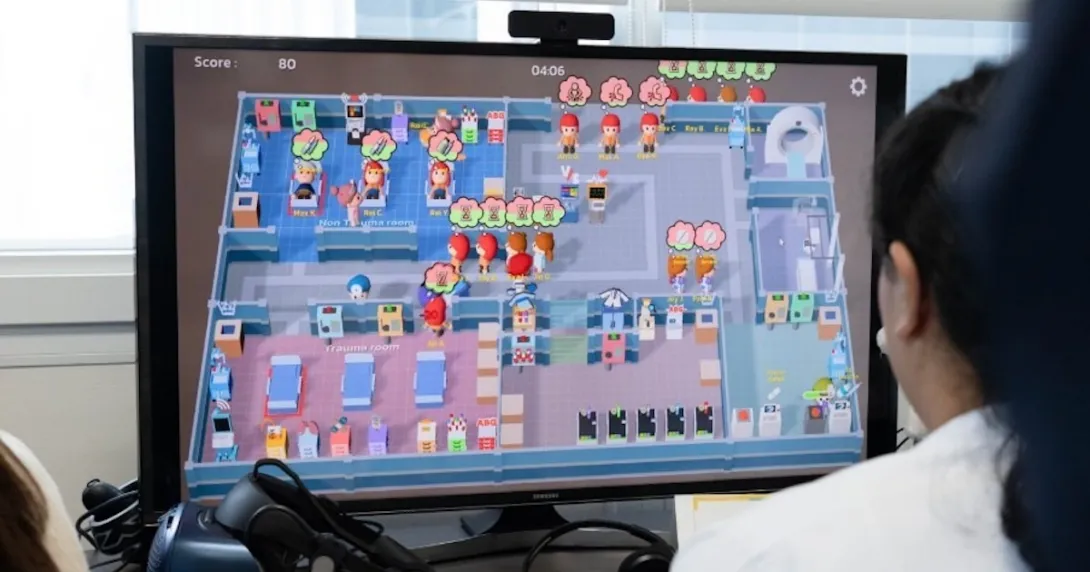
Photo courtesy of Chulalongkorn University
Chulalongkorn University has introduced a virtual reality-based training program for enhanced emergency collaborations.
The medical education programme, called ER-VIPE (Emergency Room–Virtual Interprofessional Education), aims to improve emergency staff teamwork, communication, and patient safety while minimising human errors.
HOW IT WORKS
Developed by the Chulalongkorn University Design for Society Center (CUD4S) with the Faculty of Medicine and the Thai Red Cross Society's King Chulalongkorn Memorial Hospital, ER-VIPE prepares multidisciplinary healthcare teams for high-pressure emergency scenarios through immersive simulations. It is designed for doctors, nurses, pharmacists, and radiologic technologists, among others.
The programme features online medical coursework (MOOC) and interactive gameplay, which help build team-based non-technical skills, such as communication, decision-making, and multidisciplinary collaboration. Training scenarios are modelled on the TeamSTEPPS framework, a widely adopted teamwork system for healthcare.
Each training session is followed by digital feedback and performance analysis to reinforce learning.
WHY IT MATTERS
Thailand records more than 400,000 unsafe medical care cases each year, costing the economy over 9.6 billion baht (nearly $300 million). Globally, deaths linked to medical errors outpace aviation accidents by a factor of 10,000. The ER-VIPE project seeks to address this systemic issue by providing healthcare teams with a scalable, low-risk training model.
Chulalongkorn University cited research indicating that VR-based healthcare training can cut medical errors by an average of 3.5 cases per month, lower patient deaths by 2.3 cases monthly, and boost patient satisfaction by nearly 1% each month.
It also reported that early pilots in five unnamed hospitals showed a 28% improvement in team communication, 38 fewer critical errors in emergency scenarios, and reduced staff burnout.
The ER-VIPE is now being scaled nationwide. A national forum was recently convened, involving nine Thai healthcare councils and associations: the Medical Council of Thailand, Nursing Council, Pharmacy Council, Dental Council, Physical Therapy Council, Medical Technology Council, Healthcare Accreditation Institute, National Institute for Emergency Medicine, and the Thai Health Promotion Foundation.
They agreed to pursue the VR programme's expansion through training mandates, memoranda of understanding, continuing education credits, and integration into health sciences curricula.
THE LARGER TREND
Asia-Pacific healthcare continues to deploy VR technologies to augment staff training amid a widening workforce shortage.
In Australia, an Edith Cowan University researcher recently developed a VR-based programme to prepare paramedics and ambulance officers for unplanned out-of-hospital births.
Another VR program trains carers in Hong Kong in providing care for premature babies.
ON THE RECORD
"Patient care doesn't depend on who is the most skilled; it depends on how well the team works together. Studies show that most medical errors are not due to a lack of knowledge but due to poor teamwork," noted Dr Khuansiri Narajeenron, Chulalongkorn University assistant professor and ER-VIPE project leader.
